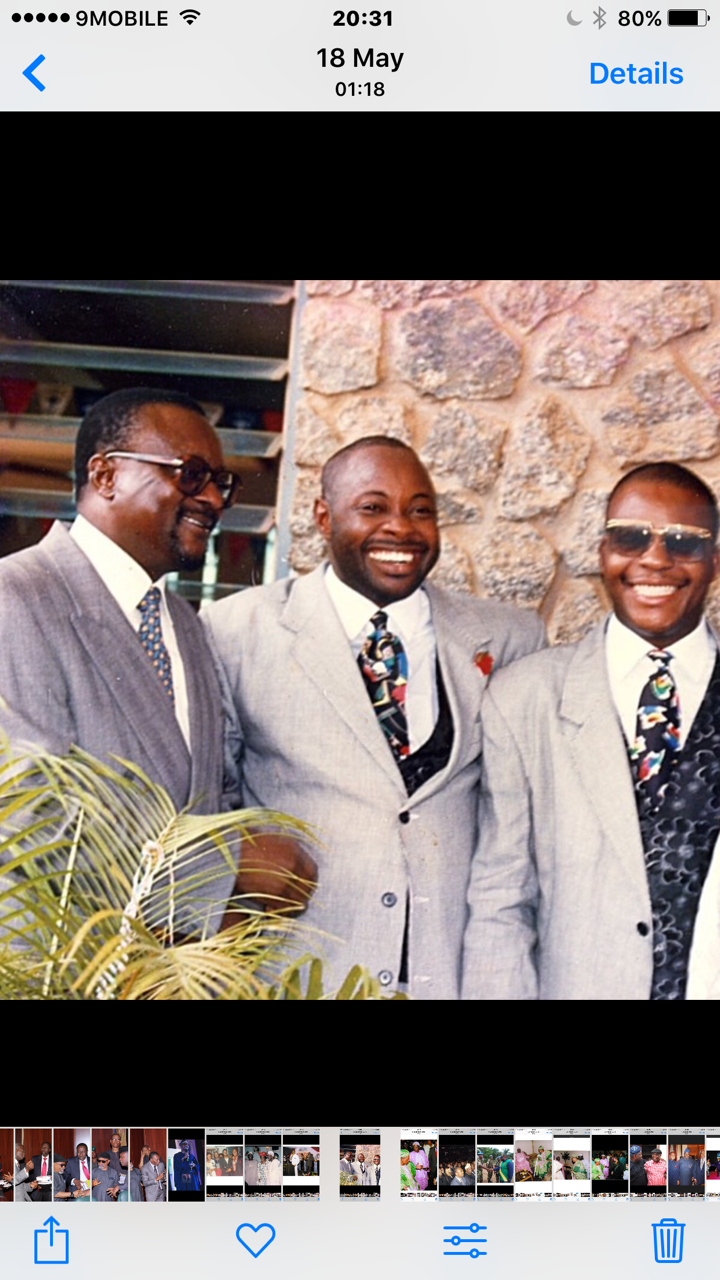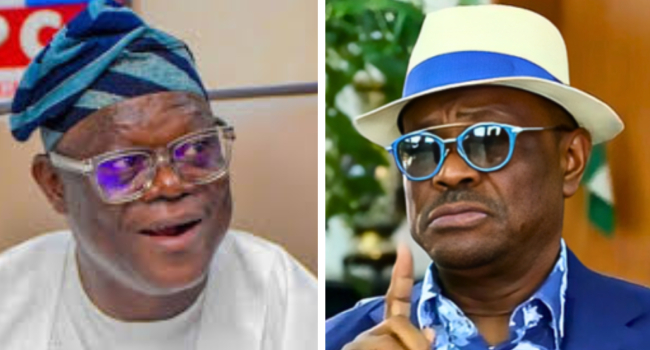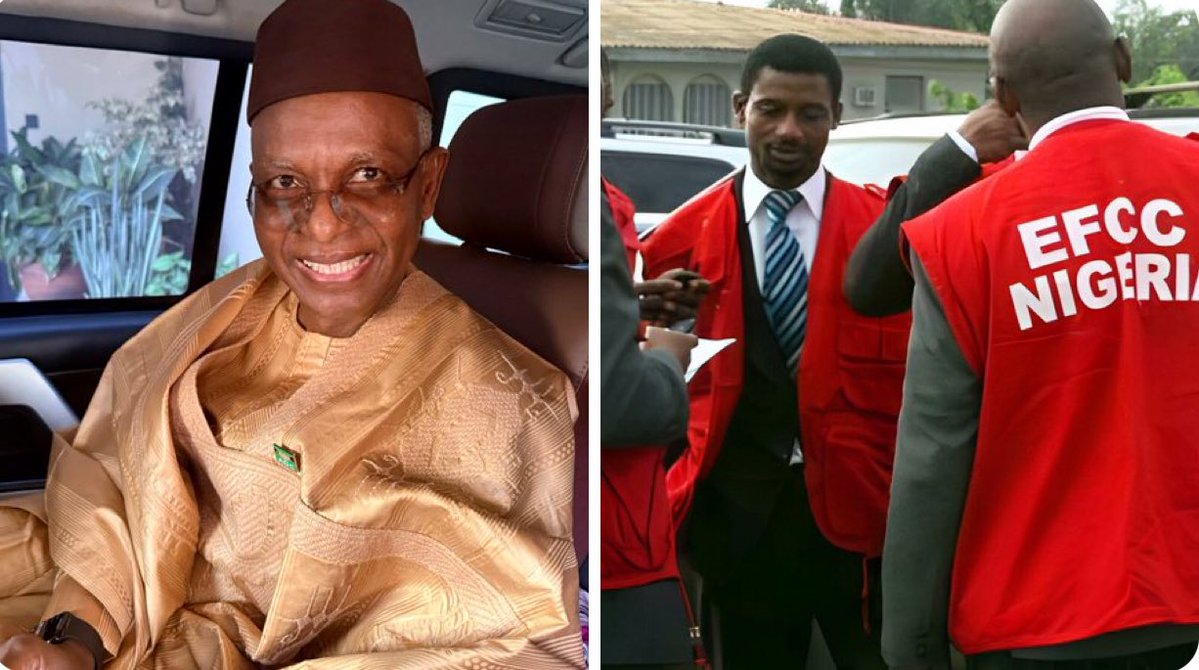By Dele Momodu
Fellow Nigerians, it is now four weeks that I have been educating and entertaining you about my 30 eventful years as a journalist and businessman in Lagos. My supersonic and meteoric journey was seemingly cut short by the three years I was forced to spend in exile, during the draconian government of General Sani Abacha. I ended my epistle to you last week at the point I arrived Accra, Ghana, in the evening of July 25, 1995. Let me say it loud and clear, I fell instantly in love with Ghana. By the time I woke up the following morning, I had to do two things; find my way around Accra to locate and meet the few friends I had on ground and link up with my amazing friends in England who were already meeting, planning and raising funds for me to fly out of Accra to London. I remain eternally indebted to so many people, most of them much younger. They stood by me like the Rock of Gibraltar.
First, I headed to the Osu area of Accra where the Abiolas had a company headed by Dele Gbajumo, who took care of me and treated me like a king. Then, I meandered my way to find an old Ghanaian friend, Fritz Baffour who had lived in Nigeria, but returned home to become a famous man. He gave me an Akwaaba reception immediately we reunited, showed me round important places and introduced me to distinguished personalities. My love for President Jerry John Rawlings started from my short sojourn in Ghana. I was impressed by his work. Little did I know we’ll be good friends in the near future. I enjoyed those three days spent in Ghana but was truly troubled by the country I had left behind in the hands of some adventurous, blood-sucking soldiers. On the evening of July 28, 1995, I boarded a British Airways flight from Accra to London Gatwick. At the Kotoka International Airport, Accra, I ran into the Editor-in-Chief of Tell magazine, Nosa Igiebor. We greeted warmly, as always. I soon discovered he was also heading into exile. Our flight took off and landed safely in London.
My friends were waiting anxiously for my arrival in London. I must say, I’m richly blessed by kind-hearted friends. They did everything humanly possible to ensure I did not feel too miserable. I stayed for several months in the home of Olugbenga and Ayo Olunloyo. Olugbenga is the son of the great mathematician and former Governor of Oyo State, Dr Victor Omololu Olunloyo. I felt completely at home. Our friends came every evening from work to arrange barbecue and all sorts for me. The next headache was how to get my wife and first son, who was under one year old, out of Nigeria. I urged my wife to take the NADECO route but the stubborn Christian insisted God would clear the way for them through the Murtala Muhammed International Airport. The risk was huge, but she went ahead. Meanwhile, I waited anxiously and with great trepidation on the other side and could not sleep all night, like a victim of insomnia. I left early for Gatwick Airport and waited with bated breath for my darling wife and adorable son. I saw many known and unknown Nigerians come into the Arrivals Hall having passed through Immigration and Customs, but my wife and son took almost forever in showing up. I had turned into jelly, shaking and sweating simultaneously. Telephones were not that common in those days so I wasn’t even sure they were allowed to board the flight. I was about giving up and resigning to fate when they emerged from the belly of the airport. My innocent son was obviously enjoying himself on top of a trolley while his mum pushed him along with their luggage. The sight of them was such a great relief!
We left the airport thanking God, while my wife regaled me with the drama that unfolded as they headed to the boarding gate in Lagos. They were stopped by security agents who stared at their passports for eternity. One of them asked if she was Dele Momodu’s wife and running away too, and she froze on the spot wondering if she should deny me like Peter denied Jesus but she kept mute. Then the unbelievable happened and the guys waved them off as if mesmerised by the Holy Spirit. My wife would not let me rest about the efficacy of prayers and I’ve come to accept her as our prayer warrior in the family. I believe God will call us soon and our dream church will come one day. Anyway, that was how we settled in London.
I soon joined other dissidents in London that included, Bola Tinubu, Alani Akinrinade, Dan Suleman, John Oyegun, Bolaji Akinyemi, Wale Osun, Peter Obadan, Tokunbo Afikuyomi, and others. Life was tough and brutish. Many of us lived from hand to mouth and those who had something shared with others. We lived more like communists. I will never forget the interventions of Bola Tinubu in particular. I was a regular in his flat with access to his kitchen where I cooked and ate whatever was available, plus I gladly consumed his varied assortment of drinks. My friend, Orji Kalu, came around from time to time and made sure we met and had dinner either at his home in North Finchley or somewhere in the West End. He was kind and never abandoned me. Kalu and Tinubu even attended the christening of our second son in July 1996.
We spent months hoping against hope that some miracle would happen and Abacha would relax his grip on power. But it remained a pipe dream and mirage. Nothing of the sort happened. The winner of the June 12, 1993 Presidential election, Moshood Abiola, remained in detention and solitary confinement. The worst soon happened, in many ways. Abiola’s beautiful and dutiful wife, Kudirat was murdered in cold blood on the streets of Lagos. The Ogoni Rights Movement leader, Ken Saro-Wiwa was sentenced to death and ignominiously hanged. Papa Alfred Rewane was shot dead in his bedroom. It was bad news galore. Almost on daily basis, terrible and tragic news came from home. We met fellow rebels occasionally at the Quadrangle, somewhere off Edgware Road and deliberated on strategies that can free Nigeria from servitude and oppression. We did what we could. Meanwhile, my main offence, which led to me fleeing Nigeria, was that I was falsely accused of being one of the brains behind Radio Freedom, which later became Radio Kudirat. Though I had some information about its operations, I was not one of the operatives whilst I was in Nigeria. The main man then was Kayode Fayemi. I knew two other friends who were heavily involved in the clandestine project, Richie Dayo Johnson and George Noah. I would later join them. I passionately ran the Yoruba programmes and got a lady to do some Hausa versions intermittently.
The biggest challenge was how to liberate the uncrowned President-in-waiting, Moshood Abiola. We toyed with all manner of plots including meeting with Germans, by Bola Tinubu and I. The Germans promised they could carry out some Entebbe-like operation similar to the one by the Israelis in the days of Idi Amin Dada of Uganda. I must doff my hat to the commitment and dare-devilry of Bola Tinubu once he embarks on any assignment. I witnessed this first hand and hope to elaborate more in my autobiography later. He put in so much and his home in New Cavendish was a Mecca of sorts for most dissidents.
On a personal note, I had to fight a different kind of battle. How to look after my family. I must specially thank the British Government for the incredible support we were given. I’m not sure of a better and greater country when it comes to looking after refugees like us. I applied for asylum and got powerful supportive letters from Nobel laureate Wole Soyinka and Kayode Fayemi who both confirmed my status in the political struggle to the Home Office in Croydon. Mercifully, I was granted full asylum by the British Government and was given refugee passports for myself and my family. Also, my cousin, Olusegun Fatoye miraculously spoke to me about finding something to do while domiciled in London. His idea and suggestion was that I should set up a magazine in London since that was my area of core competence back home in Nigeria. Not a problem. Trouble was where and how to raise funds. Our business plan showed we needed about £150,000 but if you sold our family, from first generation to the last, it was just impossible to raise that amount. And no bank was going to risk a loan on a brand new media company. My Uncle Chief Fatoye was God-sent as he scraped his account to drop the first £10,000 that launched Ovation. A few family members and friends scotched their accounts to bring out whatever they could put in. These were true believers in the dream that we could produce and deliver a world class publication.
We got a posh office in Docklands and this is another interesting story that must be told fully in the near future. The very day we moved in and we were having celebratory drinks, a bomb exploded next door. We all jumped up and started sprinting like Ben Johnson. “Abacha, Abacha, Abacha…” I screamed. I thought Abacha was on our trail to London. Unknown to us the bomb had been detonated by the Irish Republican Army (IRA). That was our baptism of fire. We were lucky that our building at Beaufort Court was bomb-proof and we were able to return the following week. The journey of how we assembled our team, did our best production, managed to print the maiden issue, the endless battle with bailiffs over our piling debts, and our eventual break and triumph are best reserved for my book. We give God all the glory for sustaining us.
A TOAST TO SIR SHINA PETERS AT 60
Here is a special tribute to one of Africa’s most gifted musicians, Sir Shina Peters, composer, multi-instrumentalist, singer and Afro-Juju creator. The story of our journey together is long and exciting. Our first encounter was a case of love at first time. He was launching his ACE album at the Railway Club in Ebute-Meta and I was asked to represent Concord newspaper, by our Managing Director, Doyinsola Abiola. It was a big carnival and that was where I met the footballer, John Fashanu, for the first time. Shina and I established a tight bond from then on. I wrote copiously about him in Weekend Concord which was the highest circulating paper at the time. I wrote the story that gave him the title SHINAMANIA for his second album. Shina was the craze in town.
He was the rave of the moment and we celebrated him endlessly. At a point, he was signed on by SONY Music where Keji Okunowo was Managing Director. I was appointed his public relations consultant. His biggest fan was Chief, Moshood Abiola, my boss and mentor. During my wedding in December 1992, Shina Peters was my Bestman. I actually had two Bestmen – Kunle Bakare was the other. We shared many fond memories at home and abroad. Shina brought together a new group of what we called yuppies in town, Aliko Dangote, Femi Otedola, Mohammed Gobir, Lanre Tejuoso, Segun Awolowo, Ayo Subair, Wale Otubanjo, Hosa Okunbo, Rotimi George-Taylor, and many others. It was unlimited fun at the popular hangout in Stadium Hotel Surulere, Lagos.
Shina exploded like an atomic bomb on the Nigerian music scene. I’m not sure anyone else has been able to cause such volcanic eruption. It a great tribute to the uniqueness of his music that he has succeeded in maintaining his stardom and he is still one of Nigeria’s iconic entertainers.
On May 30, 2018, my dear friend and Brother will be celebrated by the high society of Lagos, in a grand reception at the Federal Palace Hotel, Victoria Island. Let me hasten to warn potential gate-crashers, of which there will be many, that the bash is strictly by invitation.
Help me raise a toast to good health and prosperity for SIR SHINA PETERS AT 60…

 News5 days ago
News5 days ago
 Headline5 days ago
Headline5 days ago
 Featured4 days ago
Featured4 days ago
 Featured4 days ago
Featured4 days ago
 Headline6 days ago
Headline6 days ago
 National5 days ago
National5 days ago
 Featured3 days ago
Featured3 days ago
 Featured3 days ago
Featured3 days ago












